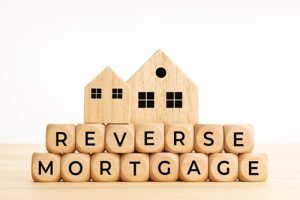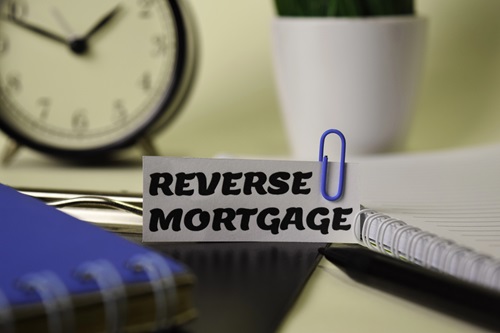
When homeowners look to tap into their home equity, two common options often come to mind: a traditional home equity loan and a reverse mortgage. While both can help access funds tied up in your home, they serve different purposes and cater to distinct financial needs.
The key differences to help you determine which loan option might be the right choice for you.
1. Purpose and Eligibility
Traditional Home Equity Loan:
A traditional home equity loan allows homeowners to borrow a lump sum against the equity in their home. It’s often used for major expenses such as home renovations, debt consolidation, or financing a large purchase. Borrowers must typically demonstrate a strong credit history and the ability to make monthly payments.
Reverse Mortgage:
A reverse mortgage, on the other hand, is designed primarily for homeowners aged at least 62 who want to convert part of their home’s equity into cash. The most common type of reverse mortgage is a HCEM (Home Equity Conversion Mortgage) which is insured by the FHA. Unlike a traditional home equity loan, reverse mortgages do not require monthly payments as long as the homeowner lives in the home as their primary residence, pays property taxes, and maintains the home.
2. Payment Structure
Traditional Home Equity Loan:
With a traditional home equity loan, you receive a lump sum upfront and repay it with regular monthly payments over a fixed term. The loan must be repaid in full, with interest, regardless of your age or how long you live in your Greenville SC home. The repayment structure is similar to a regular mortgage.
Reverse Mortgage:
With a reverse mortgage, the lender pays you either in a lump sum, through regular disbursements, or as a line of credit. Instead of making monthly payments to the lender, the loan balance grows over time and is typically repaid when
- the homeowner moves out permanently
- sells the home
- passes away
This unique payment structure makes reverse mortgages appealing to seniors who need additional income but wish to stay in their homes.
3. Ownership and Responsibility
Traditional Home Equity Loan:
You retain full ownership of your home with a traditional home equity loan, but you are required to make regular payments. If you fail to make payments, your home could be at risk of foreclosure, just as it would be with any mortgage.
Reverse Mortgage:
With a reverse mortgage, you continue to own your home and remain responsible for its upkeep, property taxes, and homeowners’ insurance. However, failing to meet these obligations can lead to foreclosure. The key difference is that no monthly loan payments are required, which can relieve financial pressure for homeowners on a fixed income.
4. Loan Amount and Interest Rates
 interest rates reverse mortgage
interest rates reverse mortgageTraditional Home Equity Loan:
The amount you can borrow with a traditional home equity loan typically depends on the percentage of equity you have, your income, and your credit score. Interest rates for traditional home equity loans are often fixed, meaning you have the certainty of consistent monthly payments.
Reverse Mortgage:
The amount available to you in a reverse mortgage is based on several factors, including
- the the home’s value
- age of the youngest borrower
- current interest rates.
Typically, the older the borrower, the larger the portion of home equity that can be accessed. Reverse mortgage interest rates can be either fixed or variable, depending on the chosen payout option.
5. Repayment Obligations
Traditional Home Equity Loan:
You must repay a traditional home equity loan in full, with interest, through scheduled payments. The loan remains active until you’ve paid it off, regardless of any life changes, such as moving or selling your home.
Reverse Mortgage:
A reverse mortgage is only due when the homeowner passes away, sells the home, or permanently moves out. If the home is sold to pay off the loan, any remaining equity belongs to the homeowner or their heirs. Reverse mortgages are non-recourse loans, meaning that if the loan balance exceeds the home’s value, neither the borrower nor their estate is held liable for the difference.
Choosing the Right Mortgage Option for You
Choosing between a traditional home equity loan and a reverse mortgage depends largely on your age, financial situation, and long-term goals:
– A traditional home equity loan is often a good fit for those who need immediate access to a lump sum, have a reliable income stream to cover monthly payments, and wish to maintain their current financial arrangements.
– A reverse mortgage might be the better choice for retirees looking to supplement their income, avoid monthly payments, and age in place without the immediate financial pressures of repaying a loan.
Both traditional home equity loans and reverse mortgages allow homeowners to unlock their home’s value, but each serves a different purpose and comes with its own set of considerations. A traditional home equity loan is a familiar route for those comfortable with monthly payments, while a reverse mortgage can offer retirees a much-needed financial cushion.
If you’re still unsure which is the best option for you, consulting with Reverse Mortgage Specialist David Stacy can help clarify the choice based on your individual needs and financial situation. Give us a call today.
Reverse Mortgage Specialist
Greenville, SC 29607
(843) 491-1436
https://www.reverse-info.com/areas-served/greenville/


 reverse mortgages in Greenville SC
reverse mortgages in Greenville SC
 reverse mortgage in Greenville SC
reverse mortgage in Greenville SC
 reverse-mortgage-in-Greenville-SC
reverse-mortgage-in-Greenville-SC